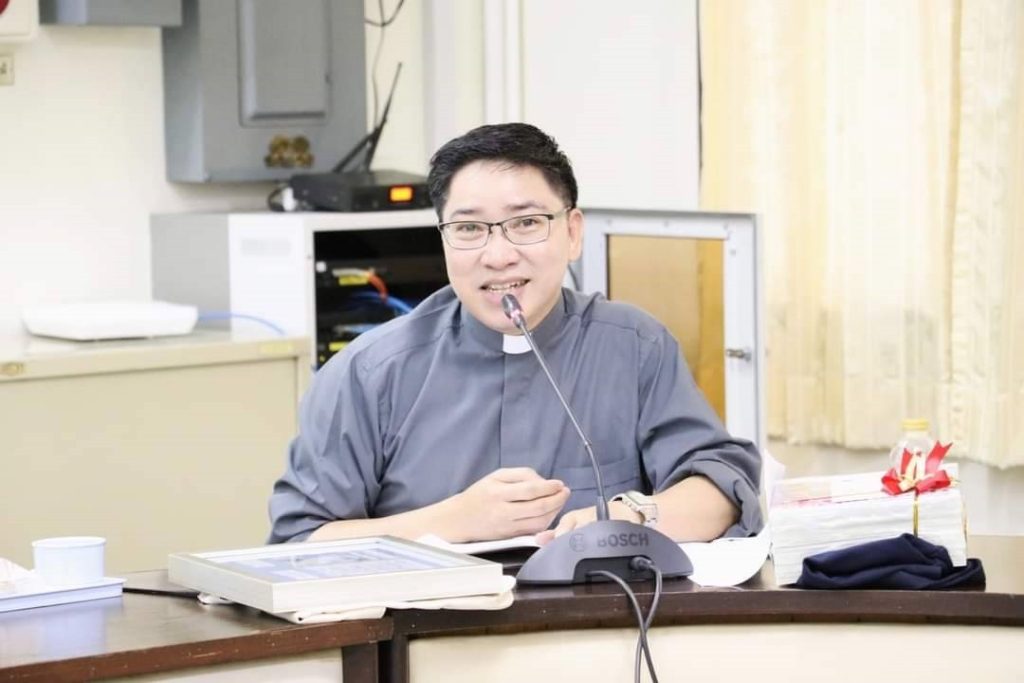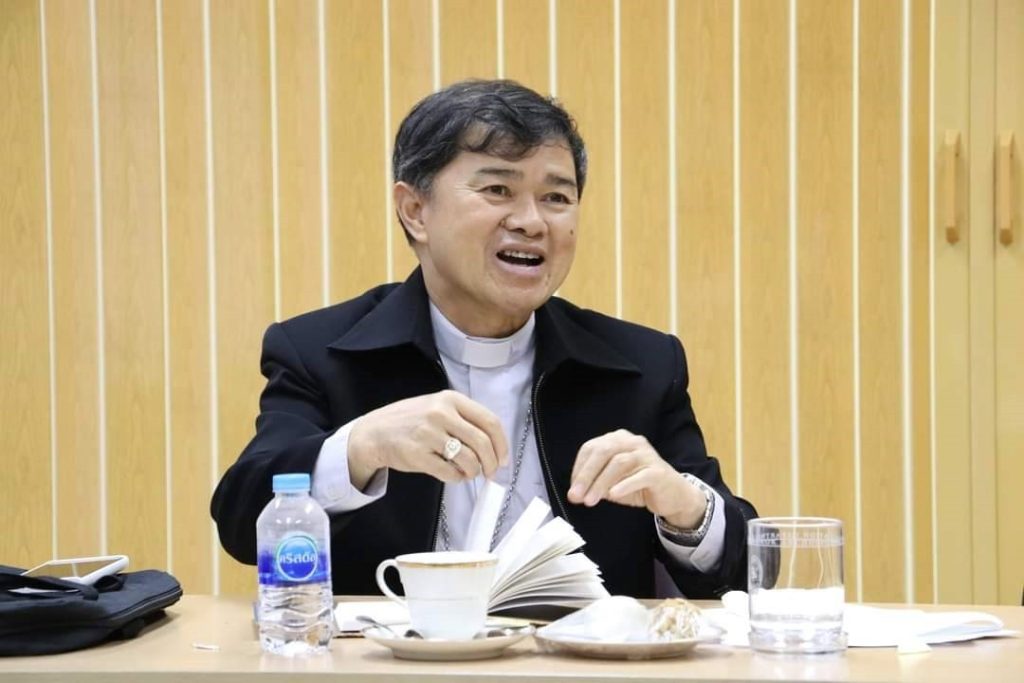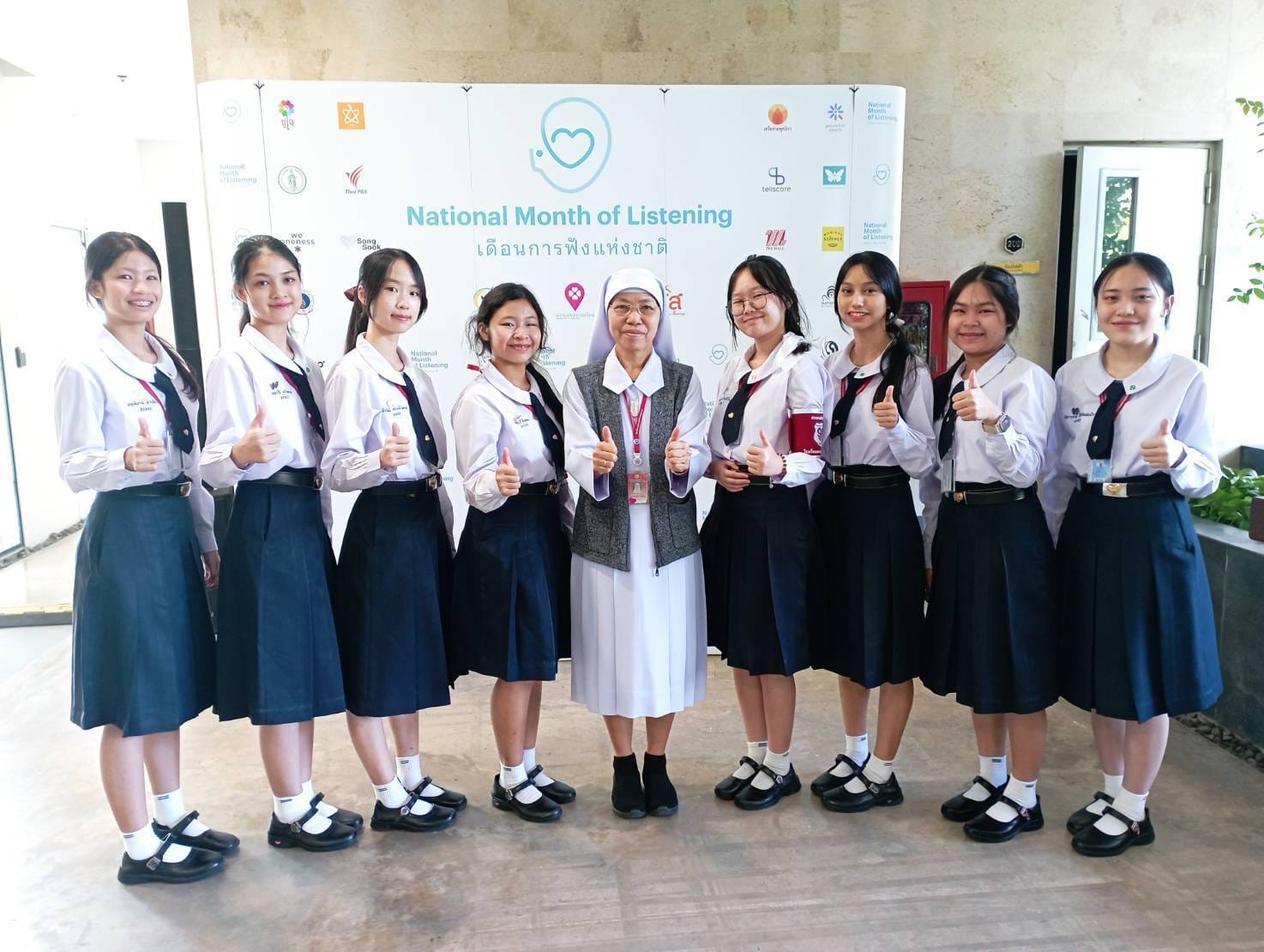Thailand has launched its first-ever “National Listening Month,” a new initiative welcomed by the Catholic Education Council of Thailand (CECT) and aimed at fostering empathy and active listening within the country’s Catholic schools.
The month-long campaign is seen as a significant step toward strengthening connections within Thai society, where feelings of division and isolation are on the rise.
“We are overjoyed that our nation is dedicating November each year to the ‘National Listening Month’ initiative. This campaign will undoubtedly foster a culture of empathy and active listening within our Catholic schools, aligning perfectly with Pope Francis’s inspiring vision of synodality,” said Fr. Paul Ekarat Homprathum, Secretary-General of CECT.

The initiative, organized by Thailand’s Volunteer and Happiness Bank in partnership with networks promoting intellectual well-being, underscores the role of listening in building meaningful relationships.
According to a campaign representative, “This year marks the inaugural declaration of November as ‘National Listening Month.’ We invite everyone to become ‘Listenians’—individuals who embrace the three essential elements of listening: being fully present with those around us, mindful of our own thoughts, and attuned to the feelings of others.”
With CECT overseeing more than 300 schools and over 500,000 students, mostly non-Catholic, this initiative extends beyond religious boundaries. The CECT views it as a valuable opportunity to strengthen the Church’s mission of building a more engaged, inclusive community.
Archbishop Anthony Weradet Chaiseri, episcopal chairman of the CECT, explained how the campaign aligns with the Church’s ongoing emphasis on synodality.
“This initiative aligns perfectly with our ongoing efforts within the Church to prioritize synodality. We emphasize the importance of listening and engaging in dialogue to foster meaningful relationships, which is essential for building the Church as a community of believers,” he said.

The archbishop also highlighted the campaign’s relevance to the Church’s educational mission, announcing plans to encourage school administrators to actively listen to students, teachers, and staff as part of the synodal processes in schools.
“This national campaign inspires us to further promote a climate of listening within our Catholic schools,” he added.
Fr. Paul Ekarat further emphasized the connection between Pope Francis’s vision and the goals of National Listening Month, reiterating, “Pope Francis teaches that we are called to be a listening Church, and it is essential for us to listen to our brothers and sisters as they share their hopes and faith challenges.”
He noted that this includes students, teachers, and staff in Catholic schools, who are encouraged to share openly.
Fr. Paul added that synodality serves as a critical pathway for Catholic school leaders to engage more deeply with teachers, staff, and students.
“Listening to young people allows us to address not only their academic and family challenges but also existential questions, including the meaning of life, vocation, suffering, and salvation. Truly understanding these issues requires empathetic listening,” he said, noting that young people have a profound need for genuine engagement.

As National Listening Month unfolds, its organizers hope to bring renewed attention to the value of listening in a world dominated by fast-paced information and influential voices.
The campaign advocates for active, empathetic listening as a cornerstone of meaningful interactions in both educational and broader social settings.







